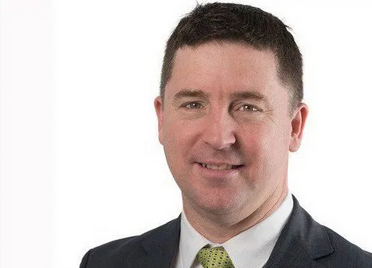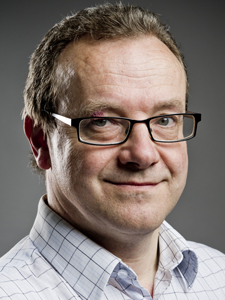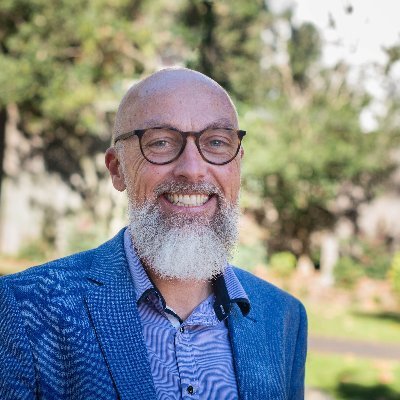Michael Kellahan interview with TGCA
Freedom for Faith’s Executive Director Michael Kellahan recently spoke with Akos Balogh from The Gospel Coalition Australia.
TGCA: Michael, what are some of the threats to Religious Freedom in Australia at the moment?
Michael Kellahan: It partly depends on who you believe. We’ve just seen 16,800 submissions go to the Ruddock Inquiry into the legal protection of religious freedom. People are therefore genuinely concerned about it. Some of them say there’s no challenges to religious freedom at all. Others say the religious freedom is a threat to good order, and even to democracy. Yet others – like us – would say there are serious challenge to our civic freedoms – a growing intolerance and a growing inability to account for difference. This failure to agree on whether there is a problem or what the problem is, is unusual for law reform. Thus the protection of religious freedom has an urgency that it hasn’t seen in years.
TGCA: Are there particular examples of pressures on religious freedom?
MK: There is evidence of challenges. The recent case of Archbishop Porteous in Tasmania – since followed by a couple of Tasmanian Presbyterians, to name but two. These people had complaints brought against them in the Tasmanian Human Rights commission, for speech and blogging [on the issues of marriage and sexuality] deemed ‘offensive’. This raises an increasingly urgent question: are we going to be free to teach the Christian faith in places where it is in conflict with the cultural norms, and the law of the land, now that same-sex marriage has gone through?
There are also challenges for freedom of association, and the ability of churches to meet in public school spaces. Some principals are now saying to churches who meet at their schools ‘you’re not to speak on certain issues’. There are challenges in employment law. People have been dismissed because of their faith position on various issues (faith isn’t a protected attribute everywhere in Australia). On the flipside, the ability of Christian organisations to preference the employment of people who are sympathetic to their mission, or of the same faith, is more and more being questioned. Many see such practices as ‘a licence for bigotry.’
TGCA: You earlier mentioned the Ruddock Review. Our readers may have seen it in the news, but can you tell us what it is, and how it may affect religious freedom?
MK: Former Attorney General [under John Howard] Phillip Ruddock has been charged by the Prime Minister to deliver a report by the 31st of March on the adequacy of religious freedom protections. That’s now been extended to May 18. It came out of the marriage debate, but it’s bigger than that – the terms of reference for the Review don’t even mention marriage. It’s examining the legal protections for religious freedom in Australian law – including the various state and territory laws. And as mentioned, the review has produced over 16,800 submissions.
Freedom for Faith did a submission for it, and appeared before it, to speak on religious freedom.
TGCA: What happens after the Ruddock Review reviews those submissions?
MK: They’ll hand a report down to the Prime Minister’s office. We’re expecting the [report] will be public at that point. Ruddock’s report will then go to Cabinet, where the next step will be decided. It’s speculative to know beforehand what might happen. But presumably it could go through cabinet, into the party room, and into parliament as a draft bill. We’ve put in a proposal for legal reform in this space, as there’s surprisingly little law to protect religious freedom in Australia. Currently, there’s a cultural compact that says ‘live and let live’ around religion. But that cultural compact is under huge pressure. We don’t really see that same tolerance anymore. There’s more pressure, but little legal protection. Now, section 116 of the constitution binds the commonwealth in some ways, but not the states. Otherwise religious freedom is mostly legally protected by the exemptions of anti-discrimination law, and those exemptions are really on the nose for many people.
TGCA: What were some of the main proposals in your submission?
MK: One of the things that we’re pushing for is a better approach [to religious freedom] than the current grudging exemptions. Specifically, we want religious freedom to be recognised as a positive right. Australia could implement this legally, as it has already signed up to international treaties recognising the right to religious freedom. But it’s never been implemented at a commonwealth legal level. That would mean you could largely do away with all those exemptions that operate in state and commonwealth anti-discrimination law. And you could say instead – here’s a positively protected right to freedom. Then you wouldn’t have the differences between the states, but a consistent and reasonable commonwealth position that accords with what we already say the international law should be.
TGCA: The question sometimes arises that since Jesus told his disciples to expect persecution, why, then, should Christians care about religious freedom?
MK: The ancient world didn’t have religious freedom either. As the gospel went out, it went out to a place where it was unthinkable that the city, the nation, the empire would have a faith that was at odds with its ruler. One of the main reasons this belief changed was because of Christianity. As the gospel went out, people realised there’s an allegiance owed not just to Caeser, but to Jesus as Lord. Jesus himself, before Pilate, really opens that door, and says to Pilate you only have power because it has been given to you by another [John 19:11]. So that sense of ‘divided loyalties’ really springs from Christian roots. And so, I don’t buy the line that says ‘you should just expect persecution – end of story’: yes, God is sovereign, and persecution may come, and the church can grow through persecution. ‘The blood of the martyrs is the seed of the church’ – that’s true, but at the same time we’re also told in 1 Tim 2 that we should pray, so that we might be able to ‘live quiet and godly (and a better translation is ‘religious’) lives’. If we’re to pray for it, we’re also to act for it.
And I think even within the New Testament we see evidence of that. You see Paul appealing to the rights he has as a Roman citizen. Now they’re not rights to religious freedom, but he is not just saying ‘sure, persecute me, kill me now’, he exercises his legal right [to a fair hearing] by appealing to Caesar. And it’s not merely for his own self-protection: he’s being faithful to Christ at that point. Paul was called to testify before Kings and rulers [Acts 9:15]. And that speaks to the place for protecting freedoms for the sake of the gospel: we shouldn’t lightly give up [these freedoms], for so much of our ministry depends on these freedoms.
I encourage your readers to talk to more taxi drivers. Many of them have come from places without significant civic freedoms. Ask them how they feel about freedom, and why they came to this country. We’re actually arguing for something not out of self interest, but because it makes for a better country. The freedom that we enjoy is the freedom that others enjoy. It allows for difference – for diversity – and that’s a good thing.
TGCA: So if religious freedom is something that we are to be concerned about, then what can Christians do about it?
MK: We at Freedom for Faith would love to connect with people who are thinking more about what it means to be a faithful Christian in this space. Follow Freedom for Faith on Facebook; become a supporter – do those kind of things.
But don’t underestimate the power of the local. There’s so much that can be done by someone giving themselves to be that teacher in the school. Or that person in the bank who speaks up for the place of faith; or the parent speaking at the school gate and part of the P&C. Someone who’s not going to be needlessly contentious, but also won’t allow their faith to become privatised. Someone who is prepared to be public at a local level for the sake of Christ.
TGCA: Is there anything else you want to say about the work of Freedom for Faith?
MK: We know we’ll have a lot of work to do after the 18th of May when the Ruddock Review hands down its report, and so we appreciate prayers and support. We have had a couple of churches back us like they would back a missionary – with prayers and support and communication. We need more of that and I’d love to talk to pastors who want to know more about that. We’re helping many churches and parachurch groups think through what faithfulness looks like in this space now. We’ve also got a conference coming up on May 23rd, Sydney, NSW Parliament. We’d love to see people there.




